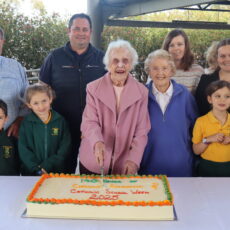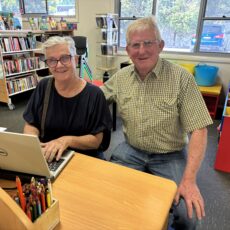Peak irrigation and farming organisations continue to pushback against the federal government’s rewrite of the Murray Darling Basin Plan as well as the devastating impacts of water buybacks.
National and state-based groups have joined local bodies in opposing the government’s continued plans to introduce water buybacks.
The National Farmers’ Federation has criticised the government’s basin bill on benefiting marginal seats in South Australia while shrinking economies of basin communities.
NSW’s peak farmers’ body, NSW Farmers, said buybacks will have devastating impacts on food production.
“It’s easy to talk about water in terms of numbers, but when you drill down into what those numbers mean I think the Minister has some explaining to do,” NSW Farmers’ water taskforce chair Richard Bootle said in a statement released last week.
“For example, one megalitre of water can produce 21,739 serves of rice, or 57,670 apples, or 51,000 potatoes.”
The region’s peak water organisation, Namoi Water, has been equally as scathing about a move straight to water buybacks, as previously reported by The Courier.
“Buybacks don’t help communities – any individual has the right to sell their assets, that’s not the issue here,” Namoi Water executive officer Mick Coffey said.
“If someone wants out and gets a price they are happy with that can’t be achieved elsewhere that’s a decision that is theirs alone to make and good luck to them if they’re a willing seller.
“The issue is the lost productivity from that water leaving local production, which results in less money in the local economy, less employment and results in people leaving.
“The science is quite clear that extra water alone won’t achieve the outcomes the environment requires. How about putting the money towards things that are needed for the environment right now?
“Get on with addressing the key degradation drivers such as invasive species like carp, habitat degradation, lack of fish passageways, cold water pollution, and a need for more fish screens. This is where the bang for taxpayer buck will be measurable.”
National Farmers’ Federation Chief Executive Tony Mahar said the reality for basin communities is that they’ll see their local economies shrink by $855 million each and every year and shed 1500 jobs as a result of the basin bill.
“Let me be clear on behalf of our members: this is not for us. This is not for the health of the river. It’s certainly not for the good of basin communities,” Mr Mahar said.
“This bill is not completing the plan, it’s rewriting the plan.
“It’s true, farmers led by the NFF have supported the plan since 2012. It was a painful compromise that we agreed to cop to restore the health of the river.
“This bill seeks to tear up that compromise. It removes the safeguards put there to protect communities.”
Mr Mahar said the government wants basin communities to believe that unlimited buybacks are their only option. “That’s simply not true,” he said.
“There are smarter ways to deliver the remaining gigalitres, and there are smarter ways to improve the health of the river – they’re all sitting unread on the minister’s desk.”
Recently, the NSW Irrigators’ Council voiced its concerns about the impact buybacks will have for Australians at the checkout.
“Higher input costs lead to higher cost of food and fibre, resulting in increased costs at the checkout,” NSWIC chief executive officer Claire Miller said
“At the same time, less water means less food and fibre grown, also putting pressure on consumer prices.”
NSWIC is firm in its position that the legislation in its current form cannot be supported due to the overwhelmingly negative impacts it would have on cost of living and on those regional communities who rely on access to water for their livelihoods.
As for the Namoi Valley, Mr Coffey has vowed Namoi Water will continue to advocate and lobby for the communities of the Namoi Valley, not just irrigators.
“There’s not a person in the Namoi who isn’t affected daily by what irrigated agriculture does, be it large or tiny. Every megalitre of water which leaves our local economy hurts every one of us.”
Minister for the Environment and Water, Tanya Plibersek said the newly agreed basin agreement is an important moment for basin communities and for any Australian who cares about the health of the environment.
“Our government made a commitment to deliver the Murray-Darling Basin Plan in full and that’s exactly what we are doing,” she said.
“Australia is facing an environmental emergency.
“The Murray-Darling pumps life into the heartland of our country. If we don’t act now to preserve it, our basin towns will be unprepared for drought, our native animals will face the threat of extinction, our river ecosystems will risk environmental collapse, and our food and fibre production will be insecure and unsustainable.
“A healthy basin also means healthy communities. It means a river that families can enjoy, that promotes recreation and tourism, and most importantly that provides clean drinking water to three million Australians every day.”
To order photos from this page click here









